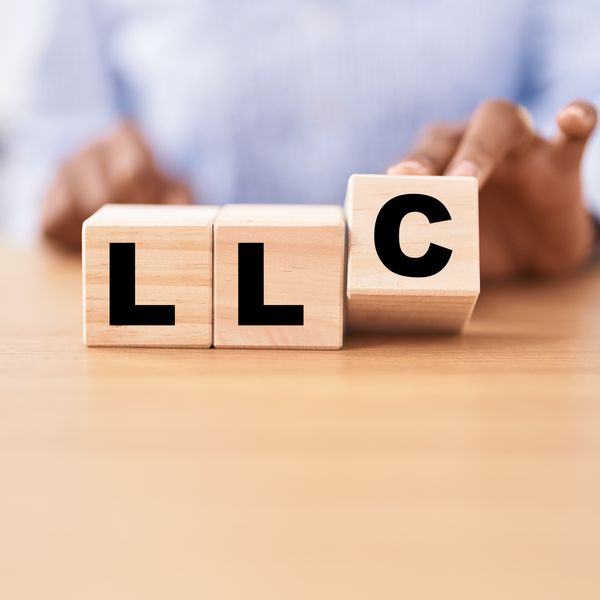
Maximizing Depreciation for Your Taxes
If you have a business, you know that you should depreciate all your assets that are expected to last a year or more. There are several different options available from the IRS that can maximize the amount that you receive, and the one you choose could substantially impact this year’s taxes. You can choose to depreciate over the life of the asset through MACRS (Modified Accelerated Cost Recovery System), or the Straight Line Method, or opt to get a bigger portion of your money up front using the, Section 179 or Special Depreciation Deduction, also called Bonus Depreciation.
Let’s look at the advantages and disadvantages of the various methods.
Straight Line Depreciation – With this method, you will get a set amount throughout the life of the asset. It is simple to use, dependable, and easy to forecast future expenses on your taxes. However, a disadvantage is that it is not really reflecting the life of your asset. For example, an asset is usually worth more in the first year, and the value depreciates year by year. Think of a new car - after the first year its value goes down drastically. With straight line depreciation, you are taking a set amount off every year, while the asset is depreciating at a greater rate.
MACRS - With MACRS, declining value is taken into account. Also known as the double-declining balance, the depreciation amount varies by year, but becomes more constant near the last year of depreciation. An additional amount added after the final year of depreciation is added to make all the percentages add up to 100 percent. This depreciation is standard depreciation, a good method to use, but does not provide you with a big first-year tax deduction like the 179 and Special Depreciation.
Not familiar with the Section 179 tax deduction? Read this.
Which is more advantageous - 179 Deduction, Special Depreciation?
You can’t have it all, and you will have to choose between the 179 Deduction and Special Depreciation on one particular asset or class. When taking either of these two upfront money deductions, it is generally the most advantageous to take the deduction on items with a longer class life that you are not going to sell or dispose of within the coming year. If you dispose or sell the items within a year, you will have to recapture the depreciation amount, which could be sizable. Remember, with 179 you can expense the entire cost of the asset, up to certain limits, while with the Special Depreciation, you can expense 50 percent of the asset. Here are some additional things to consider:
New or Used Property? – Only new property is allowed to be expensed under Special Depreciation, while assets can be either new or used while claiming the 179 Deduction.
Active or Passive? - You can only use the Section 179 in active business use, and rental property is considered passive use. You would need to expense passive use with Special Depreciation.
Purchase date early or late in the year? If you purchase an asset later in the year, it may be more advantageous to claim the Section 179 Deduction, as it does not matter when they were purchased, as long as it was during that tax year. With the Special Depreciation, you may not get the full amount in the tax year, if you purchased that item later in the year, using the mid quarter convention.
What Class of Asset is it? If you elect Special Depreciation, all assets in the class must choose this election. However, with the 179 Deduction, the election is made on an asset by asset basis, and you can elect to expense less than the full amount.
Is your Business making a net profit or a net loss? Special Depreciation has no limit on either taxable income or the amount. You can claim a net operating loss (NOL) that can be carried back. The Section 179 has dollar limits and taxable income limits. If your business is not making a profit, you may not get the full benefit out of expensing.
Is your Business Use 50 Percent or More? When electing the 179 deduction, the asset must be used over 50 percent for business use. If your business use falls to less than 50 percent, the amount must be recaptured. On the other hand, 50 percent use is not a requirement for Special Depreciation, except in the case of listed property. So if you are unsure whether business use will drop to less than 50 percent, the Special Depreciation would be a safer option to choose.
How long will you retain the asset? If you are not going to retain the asset for the life of the asset, you will have to recapture the amount, increasing your tax liability in the year of sale. In that case, MACRS depreciation might be the safer option.
Do you have Real Property Improvements? For 2012 and 2013, qualified restaurant, retain or leasehold property can be expensed in the year they are made. This provision is limited to these years, so it is advantageous to expense these items with 179 or Special Depreciation, rather than depreciating over the life.
Future tax savings - Remember expensing the entire cost of an asset by 179 in the first year will not give you a tax savings in later years. You may want to consider expensing only part of the item, using the Special Depreciation, which expenses only 50 percent.
Related Accounting & Tax Articles From Fit Small Business:
Bank Reconciliation - What it is and how to do it!
Before acting on any "advice" provided in this article CONSULT YOUR TAX PROFESSIONAL. We make efforts to be accurate but, we are not tax professionals.
Reference: IRS Publication 946 How to Depreciate Property



